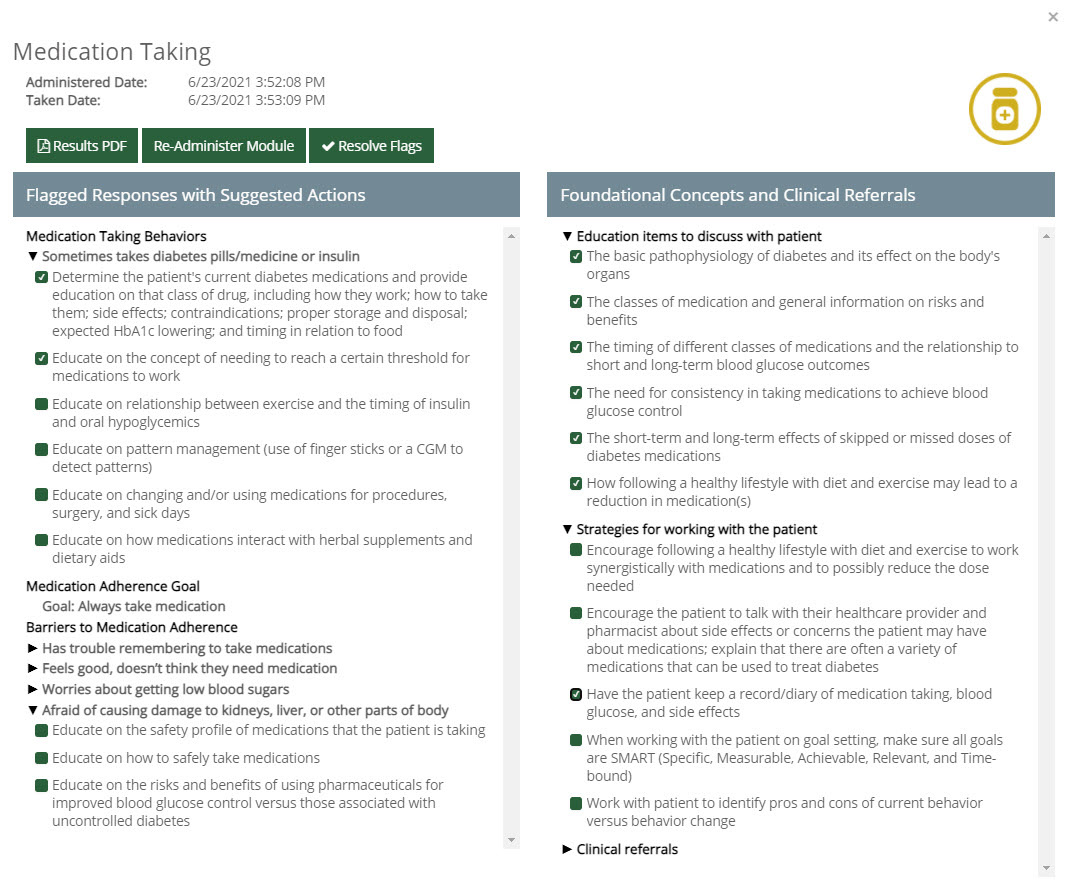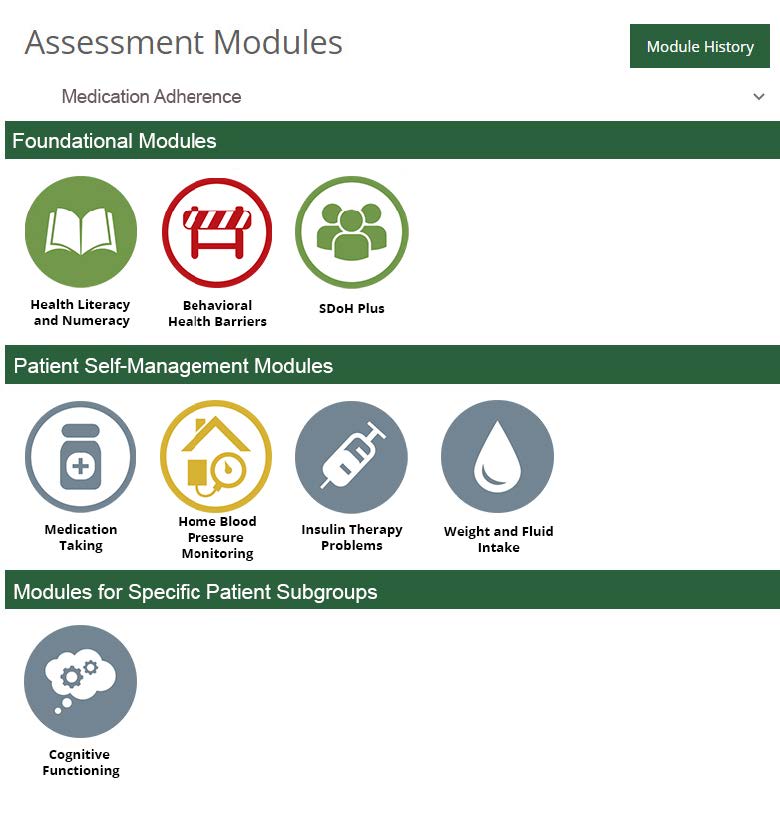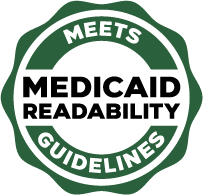A Systematic Approach to More Personalized Medication Management
In addition to quickly assessing patients’ current behaviors, goals, barriers, and preferences, the
Silver Fern modules offer extensive suggested actions for follow-up care paths that are aligned with
each patient’s individual responses.
This powerful combination of assessments and suggested actions gives a consistent framework for
working with individuals to address their specific issues and enables care management teams to
deliver consistent, quality interventions at scale.
Sample barrier, goal, and behavior flags in the
Medication Taking Module of the Type 2 Diabetes Program:







